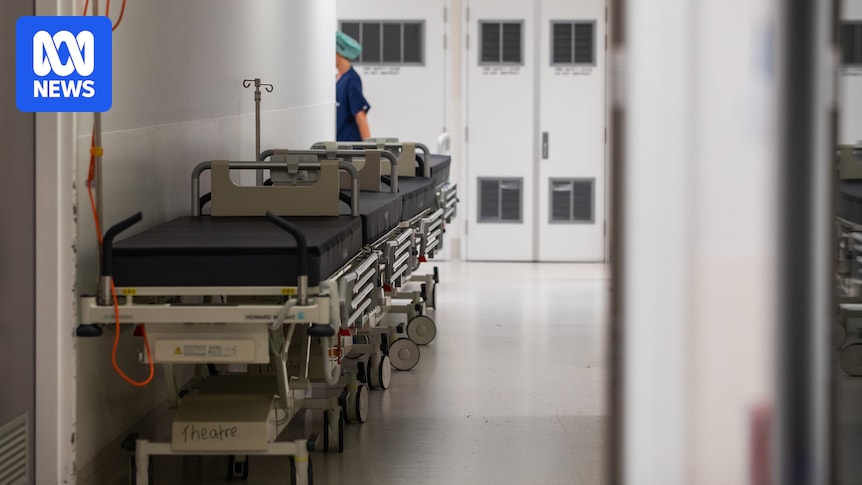An “exceptional” demand on hospital emergency departments led to elective surgeries being put on hold in Western Australia, putting immense strain on the public health system.
About 80 planned non-urgent surgeries were rescheduled on Wednesday, mostly at Royal Perth, Sir Charles Gardiner and Fiona Stanley Hospitals.
Health director general Dr Shirley Bowen said an influx of patients to hospitals on Monday and Tuesday was due in part of a severe flu season.
WA Health Director General Shirley Bowen says a number of non-urgent operations sheduled for Wednesday have been postponed. (ABC News)
“We had more than 1,000 triple-0 calls, that’s exceptional,” she told ABC Radio Perth.
“What was different about it is the people that came in those ambulances were very elderly people.
“The population has aged significantly and they are more unwell than we expected.”
The postponement of elective surgeries is a strategy used by health authorities when the system is under pressure.
Some public hospitals in the Perth metro area have paused elective surgeries sheduled for Wednesday. (ABC News: Jessica Warriner)
In November 2021, widespread cancellations of non-urgent surgery across WA occurred during a strain on resources due to the COVID-19 pandemic.
Dr Bowen said the decision late on Tuesday was to ensure access to emergency healthcare for the rest of the week and impacted patients would be notified by their treating hospital.
“We continue to prioritise our most seriously ill and injured patients,” she said.
Dr Bowen acknowledged that the rescheduling might be “inconvenient and difficult for some patients”.
“We are committed to ensuring patients’ surgery is re-scheduled as soon as possible.”
About 80 surgeries delayed: AMA
Australian Medical Association WA president Kyle Hoath said about 80 category two and three surgeries had been delayed.
He said it was largely due to the flu season and a record number of beds being taken up by patients waiting to get into aged care.
AMA WA president Kyle Hoath says more hospital beds are needed. (ABC News: Keane Bourke)
“None of these things are new. They’re the same things we’ve been talking about for the last couple of weeks, in fact probably the last couple of years,” Dr Hoath said.
“We are seeing the end result when ramping and demand for services isn’t met by our infrastructure or health sector.
“What we really need is this commitment to trying to increase the capacity in our health system. To try and add new beds, to try and find ways of helping people get out of hospital.”
Dr Hoath said the federal government played an essential part and called on it to follow through on its aged care reform and to free up space and resources in hospitals.
Health system in spotlight
The move to delay elective surgeries comes after what has been weeks of increased scrutiny on the state’s health system.
Taking the pulse of WA’s health system
When those figures came out at the start of this month, the government pointed to the state’s ageing population as a factor for the increase in ramping, and also pointed to higher influenza cases as a contributor.
But that was quickly rebuffed by Dr Peter Allely, from the Australasian College for Emergency Medicine, who said the problems were structural and much deeper than a bad flu season.
Last week, the state government, which has long touted WA’s health system as “world class”, was forced to defend its record with the opposition continuing to target the area, claiming Sir Charles Gairdner Hospital was falling apart.
WA’s shadow health minister, Libby Mettam, said the influx of demand was not unprecedented.
“The demographics of people getting older is predictable, the fact we have a flu season every single year is predictable and our flu numbers are below the national average,” she said.
“WA patients are paying the price for the Cook Labor government’s mismanagement of our hospital system.”
Loading…
